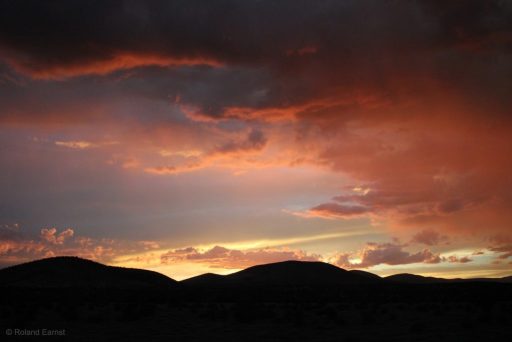
Yesterday, we talked about the problem of beauty. The question is: “How could natural selection acting on random mutations create beauty which seems to have no survival value?” I suggested that natural selection acting on blind chance mutations cannot explain all of the beauty we see in animals and plants. Let’s continue to think about this as we examine the blessing of beauty.
The blessing of beauty involves more than just visual beauty. A humpback whale’s intricate and beautiful song lasts for half an hour. Does it have anything to contribute to the survival of these mammals? Well, in a way, it does. When human technology reached a point where the humpback’s song could be heard and recorded in the 1960s, more people than whale hunters got a chance to hear it. The exposure of that song to the general population of humans played a large part in the passage of laws preventing the slaughter of those animals. But that is evidence for human appreciation of beauty, not evolutionary natural selection. For those who suggest the male humpbacks use their songs to attract females, there is little to no evidence that the females are even paying attention.
No proponent of Darwinian evolution would suggest that humpback whales are even remotely related to nightingales, but those birds also contribute to the blessing of beauty. They sing long, complex, and beautiful songs, but rather than singing into the ocean, nightingales sing from twilight into the night. As those small birds sit on a branch singing, they make themselves easy prey for predators. Instead of singing for hours in the darkness, why don’t they just be quiet and stay safe until morning?
When scientists tape-recorded nightingales and slowed down the tape, lowering the pitch a couple of octaves, they discovered something very interesting. The result was that the nightingale’s song sounded much like the song of a humpback whale. On the other hand, if you take the humpback whale song and speed it up while raising the pitch, it compares to a nightingale’s song. Why should they be so much alike? Evolutionists like to call this sort of thing “convergent evolution.” I have another suggestion. Perhaps they got their music from the same original Composer.
Since the beauty of bird songs often goes beyond attracting mates for the survival of the fittest, do the birds sing because they love to hear music? I think they are merely doing what their Creator programmed them to do. But why did God design and program these animals to sing? Perhaps the blessing of beauty is God’s gift to us. Beauty brings us joy, eases our stress, and touches our emotions. Because God loves us, He created beauty for us to enjoy. The beauty around us provides an earthly sample of the beauty God has planned for us beyond this life. In other words, beauty is another evidence that God exists. With that in mind, the problem of beauty becomes the blessing of beauty.
Tomorrow, we will look at how beauty was a problem that, according to Darwin, “makes me sick.”
— Roland Earnst © 2022







